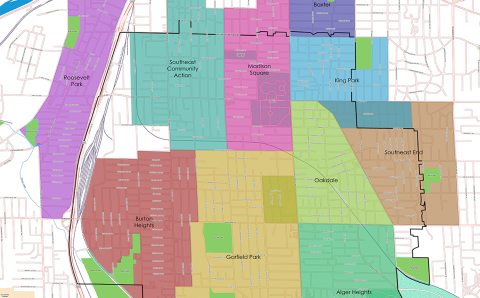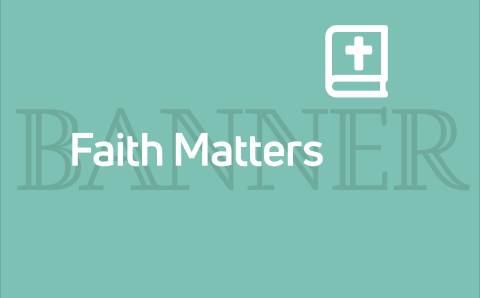After the Christian Reformed Church synods of 2022 and 2023 declared and re-affirmed the church's prohibition on same-sex sexual relationships to be confessional and encouraged classes to "guide into compliance the officebearers of their constituent churches who publicly reject the biblical guidelines affirmed by Synod 2022 regarding same-sex relationships” (Acts of Synod 2023, p.1029), certain classes and groups in the denomination are responding in various ways.
What will be the outcome for a denomination still functionally split on the acceptance of same-sex marriage while explicitly confessional on the matter? And is there traction for a Canadian group working "Towards CRC Canada?"
Separation Inevitable?
Some, like the council of River Park Church in Calgary, Alta., believe that the denomination has reached a point of separation. River Park sent a communication to the Oct. 27 meeting of Classis Alberta South/Saskatchewan, noting, “We have now arrived at a point of irreconcilable difference: we disagree on God’s will for human sexuality that leads to flourishing; we also disagree on the necessity of officebearers’ agreement, without exception, to the entirety of our denomination’s historic confessions and synod’s interpretations thereof.”
Pastor Adrian de Lange, sharing with The Banner on behalf of the church’s council, said, “River Park Church’s council initially shared an overture with our classis, hoping to spark meaningful conversation about the many factors contributing to denominational dysfunction. We want to propose a path forward that highlights Christ’s call to humility and to die to ourselves, especially to control.”
That pathway hasn’t been officially proposed yet. River Park’s council, which had drawn up suggestions of “facilitating (the CRC’s) separation into three new groups of churches,” decided to “downgrade” its overture to a communication for discussion. De Lange said after inviting feedback from the other church councils before the classis meeting, “we realized we were not communicating our intent well.”
“At this point, there is no timeline for further action, though certainly our council and congregation, and we trust others in our classis and denomination, are earnestly seeking God’s wisdom and leading,” de Lange said.
The three groups in River Park council’s suggested pathway are: “A group that seeks to hold all officebearers to full agreement with historic creeds and confessions of the CRCNA, without exception; A group that rejects the necessity of all officebearers to fully agree with all confessions of the CRCNA, instead willing to grant exceptions; A group of churches who affirm same-sex marriage and the ordination of officebearers in same-sex relationships.”River Park’s communication said they aren’t alone in thinking that it’s time to separate, citing other voices in the discourse like CRC Network contributor Elaine (Lain) Martinez Vasquez and pastor Aaron Vriesman, who wrote an opinion piece with that view in February 2020.
Unity That Allows for Disagreement?
Others, like the steering committee of the group Better Together, express belief that unity across differences in the CRCNA is still possible.
In a communication encouraging churches to speak into what it calls a “threat of dividing congregations, classes, and the denomination itself,” Better Together says it has “called the denomination, its classes, and its churches to pursue a way forward in which we are united by our commonalities rather than divided by our differences.”
Saying “the actions of Synod 2023 continue to lead us down a path toward greater division not less,” the group released a communication template, encouraging churches, individuals or groups of individuals to use it to identify themselves as a church “in protest”—a church that disagrees with Synod 2022’s confessional status declaration, but that wants to nonetheless continue participating in the CRC, “though under protest … because we love the CRCNA and seek God’s blessing upon our denomination.”
Nate DeJong McCarron, pastor of Fuller Avenue CRC in Grand Rapids, Mich., and part of Better Together’s steering committee, said the group, in the intervening months since synod, met for prayer and discernment, asking, “Where might unity still be possible?”
That’s what drives them forward now, DeJong McCarron said. “Our recognition is that, in our current Church Order, we have a tool—a means by which people, officebearers, elders and deacons can disagree in a respectful way with some of the confessional positions held up by the denomination. That means—the gravamen process—seems important to us so as to continue, united, in mission together,” DeJong McCarron said.
Church Order Supplement, Art. 5, includes the Covenant for Officebearers and the Guidelines and Regulations re Gravamina.
Better Together wants to see the process remain “as is”—not just for those with difficulty with the confessional position that “unchastity” includes all forms of homosexual sex, but for any potential difficulties over points of Reformed doctrine. “It strikes us that the gravamen tool, which has been in effect for decades, for generations, is a helpful tool to allow for people to express their difficulty and still remain in good standing so as to serve the church,” DeJong McCarron said.
This understanding of the purpose and use of confessional-difficulty gravamina is disputed. Some, including in overtures to Synod 2023, say confessional-difficulty gravamina were “never intended to be long-standing, perpetual ways for an individual to take exception to a doctrine or teaching of the church confessions” (Agenda for Synod 2023, Ov. 50, p. 532).
“We don’t deny the existence of that disagreement by any means,” DeJong McCarron said. “We also don’t feel like we need to defend the position that gravamina have been used in the past to express confessional difficulties that have been ongoing and have not been time-bound or have ‘sunset clauses’ imposed upon them.”
The Office of General Secretary of the CRC provided two articles in January 2023 called “Gravamen: What It Is and How to Use It” and “Summary of the History behind the Guidelines for Gravamina.”
The overtures (formal requests) that were sent to Synod 2023 about gravamina didn’t receive a response from that synod. Discussion of the reports dealing with them was cut short when the officers of Synod 2023 determined there was not enough time left to continue it. The overtures were deferred to Synod 2024, expected to meet in June, and the proposals that the advisory committee from Synod 2023 devised—both a majority report and a minority report—will go to Synod 2024 as communications.
DeJong McCarron reiterated, “What we are doing is trying to maintain unity and we see the (functional) elimination of gravamina as an act that will cause division and disunity among congregations, classes and across the denomination,” so it follows, he said, that in trying to maintain unity, the group “needs to speak up against things that cause division.”
He said, “One of the questions we wrestle with as a denomination is ‘Do we function as a covenant of suspicion or covenant of trust?’ … We would hope that we could reinstill trust in such a way that builds unity and fuels mission.”
Denominational Response
Before synod convenes to take up these matters anew, the denomination’s Office of General Secretary has continued inviting classes to pray together with CRCNA leadership over video conference once a month, a practice begun in the months ahead of Synod 2022. And leadership “has tried to provide helpful answers to CRC members and churches” by way of its Synod 2023 Frequently Asked Questions document.
At the Oct. 24 meeting of Classis Hamilton, a question, recorded in the minutes, was put to transitional executive director (Canada), Al Postma: How can the Council of Delegates, executive director, general secretary help those who feel disenfranchised, so that we can covenant to stay together?
Postma’s recorded remarks relayed that he was committed to ensuring that churches are working with accurate information on what synod decided and what that means and doesn’t mean when they’re trying to make decisions. The minutes referenced forthcoming material from the general secretary that would be “more helpful than the recent FAQ document to help us see what it means to be a community in this space and this time.”
The Office of General Secretary intends to release a video from general secretary Zachary King and an accompanying resource sheet addressing synod’s call to “equip congregations for pastoral ministry with and to our LGBTQ+ members and neighbors” in mid-November.
Separation on other fronts?
Besides the reality of non-uniformity across the denomination’s member churches on the human sexuality decisions of synods 2022 and 2023, there is also a group in Canada seeking greater national independence. John Vanderstoep, a CRC pastor in Fergus, Ont., spoke for the group recently in an interview with the Christian Courier. This group is pressing, as their name says, “Towards CRC Canada.”
Having met informally by video conference over the last four months, those interested in the effort are now “strengthening our internal organizational structures,” according to Rita Klein-Geltink, who chairs the group’s communications committee.
Klein-Geltink said she doesn’t consider the proposed route to independence “a divorce, but more like a child that has grown up and is now ready to leave the family home. While there's always something hard about that, it's a natural and exciting time full of potential and new opportunities.”
Towards CRC Canada presented its cause to the CRCNA Canada Ministry Board by way of a letter in October, and recently launched a website. Klein-Geltink said Towards CRC Canada “is preparing to engage in its own dialogue with members of Canadian CRC churches to share concerns and develop a shared vision of how we could expand Reformed, culturally-appropriate ministry in Canada.” The Banner will continue coverage of that conversation and its impact.
(For context on the history of binationality in the CRCNA, recent changes to organizational governance, and reactions to the various twists and turns of the history of the CRC in Canada, see The CRC in Canada: A Field Guide, first published in October 2021 with updates in 2022 and 2023.)
About the Author
Alissa Vernon is the news editor for The Banner.









